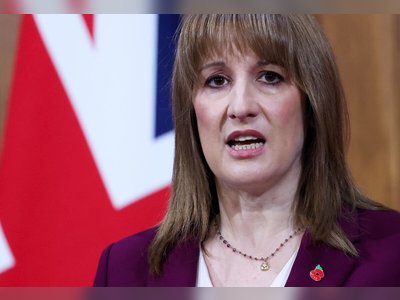
UK Bank Shares Surge Amid Signs of Tax Reprieve in Upcoming Budget
Major lenders rally on market confidence that a sector-specific tax will be avoided in Chancellor’s statement
Shares in Britain’s major banking groups climbed sharply on Tuesday amid growing investor confidence that the forthcoming budget will sideline further taxes on the financial sector.
High-street lenders such as Lloyds Banking Group rose by 3.8 per cent, NatWest Group climbed 3.7 per cent and Barclays added 2.3 per cent.
These gains followed reports that the Treasury had asked banks to issue supportive comments ahead of the budget, a sign interpreted by markets as suggesting they will be spared a fresh levy.
The prospect of a tax-free outcome for banks aligns with the government’s stated aim of preserving the financial sector’s competitiveness and supporting growth.
Previously, think-tank proposals and internal discussions had floated a new bank surcharge or windfall tax, partly to reclaim excess profits linked to the Bank of England’s quantitative easing programme.
Yet the emerging narrative sees the chancellor electing not to impose separate taxes on banks, reinforcing market expectations.
Despite this positive turn for the sector, wider economic indicators remain subdued: consumer confidence is near seventeen-year lows and retail sales continue to decline, raising questions about the strength of domestic demand.
The budget is expected to refrain from raising the main rate of income tax, but other levies and revenue-raising measures are still under consideration.
The sharp upward move in bank stocks reflects acts of intense lobbying and the significance of expectations in financial markets.
Investors will now await tomorrow’s announcement to see whether the relief is cemented and to assess whether the broader fiscal plan remains supportive of the banking sector’s role in lending and growth.
Gilt yields also fell as the bond market registered a degree of relief ahead of the budget, with some investors viewing the favourable tax tilt as a signal of a more measured fiscal stance.
The coming hours will test whether all major policies are priced in or whether further surprises remain for markets and the banking industry alike.
High-street lenders such as Lloyds Banking Group rose by 3.8 per cent, NatWest Group climbed 3.7 per cent and Barclays added 2.3 per cent.
These gains followed reports that the Treasury had asked banks to issue supportive comments ahead of the budget, a sign interpreted by markets as suggesting they will be spared a fresh levy.
The prospect of a tax-free outcome for banks aligns with the government’s stated aim of preserving the financial sector’s competitiveness and supporting growth.
Previously, think-tank proposals and internal discussions had floated a new bank surcharge or windfall tax, partly to reclaim excess profits linked to the Bank of England’s quantitative easing programme.
Yet the emerging narrative sees the chancellor electing not to impose separate taxes on banks, reinforcing market expectations.
Despite this positive turn for the sector, wider economic indicators remain subdued: consumer confidence is near seventeen-year lows and retail sales continue to decline, raising questions about the strength of domestic demand.
The budget is expected to refrain from raising the main rate of income tax, but other levies and revenue-raising measures are still under consideration.
The sharp upward move in bank stocks reflects acts of intense lobbying and the significance of expectations in financial markets.
Investors will now await tomorrow’s announcement to see whether the relief is cemented and to assess whether the broader fiscal plan remains supportive of the banking sector’s role in lending and growth.
Gilt yields also fell as the bond market registered a degree of relief ahead of the budget, with some investors viewing the favourable tax tilt as a signal of a more measured fiscal stance.
The coming hours will test whether all major policies are priced in or whether further surprises remain for markets and the banking industry alike.










